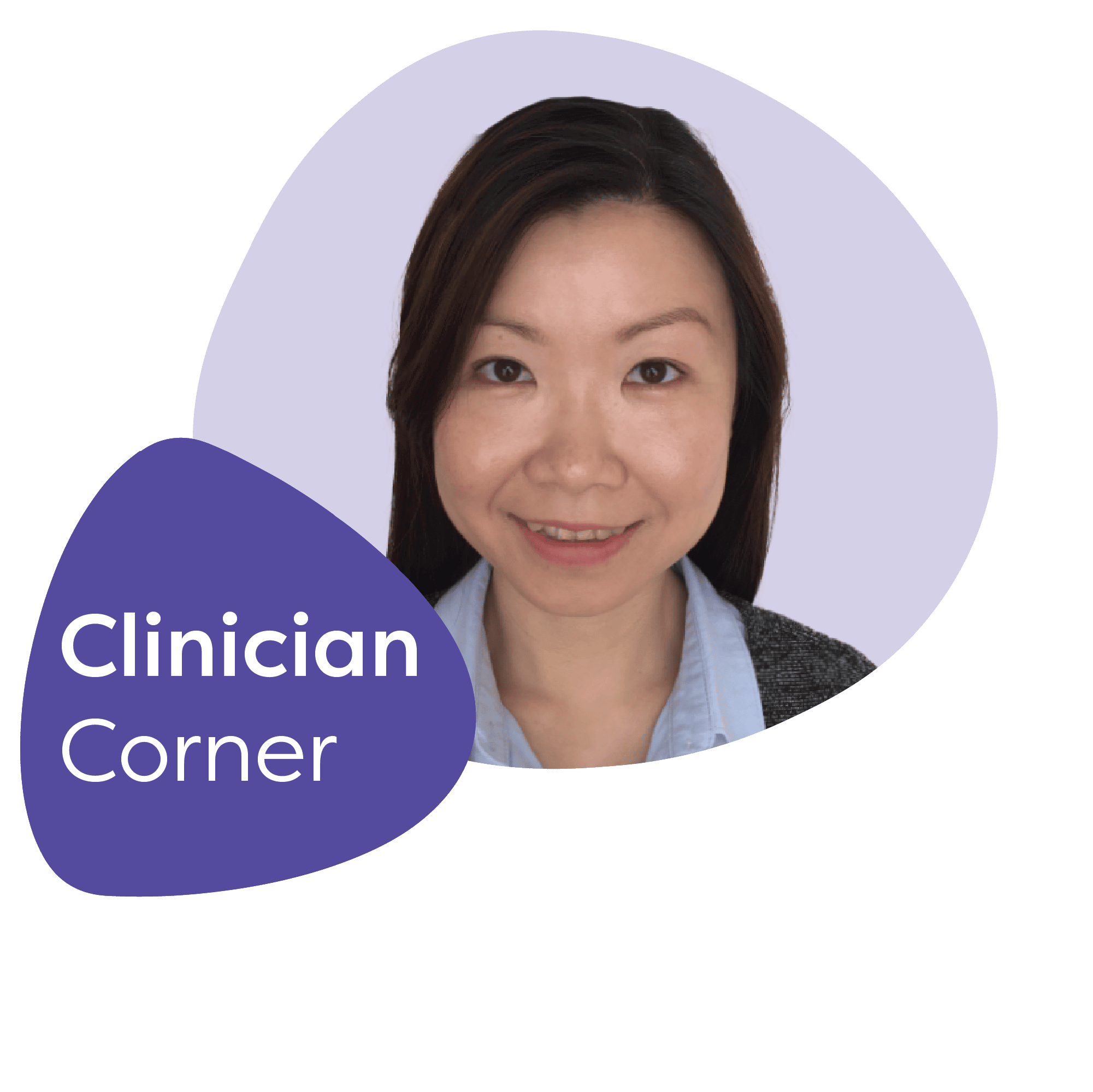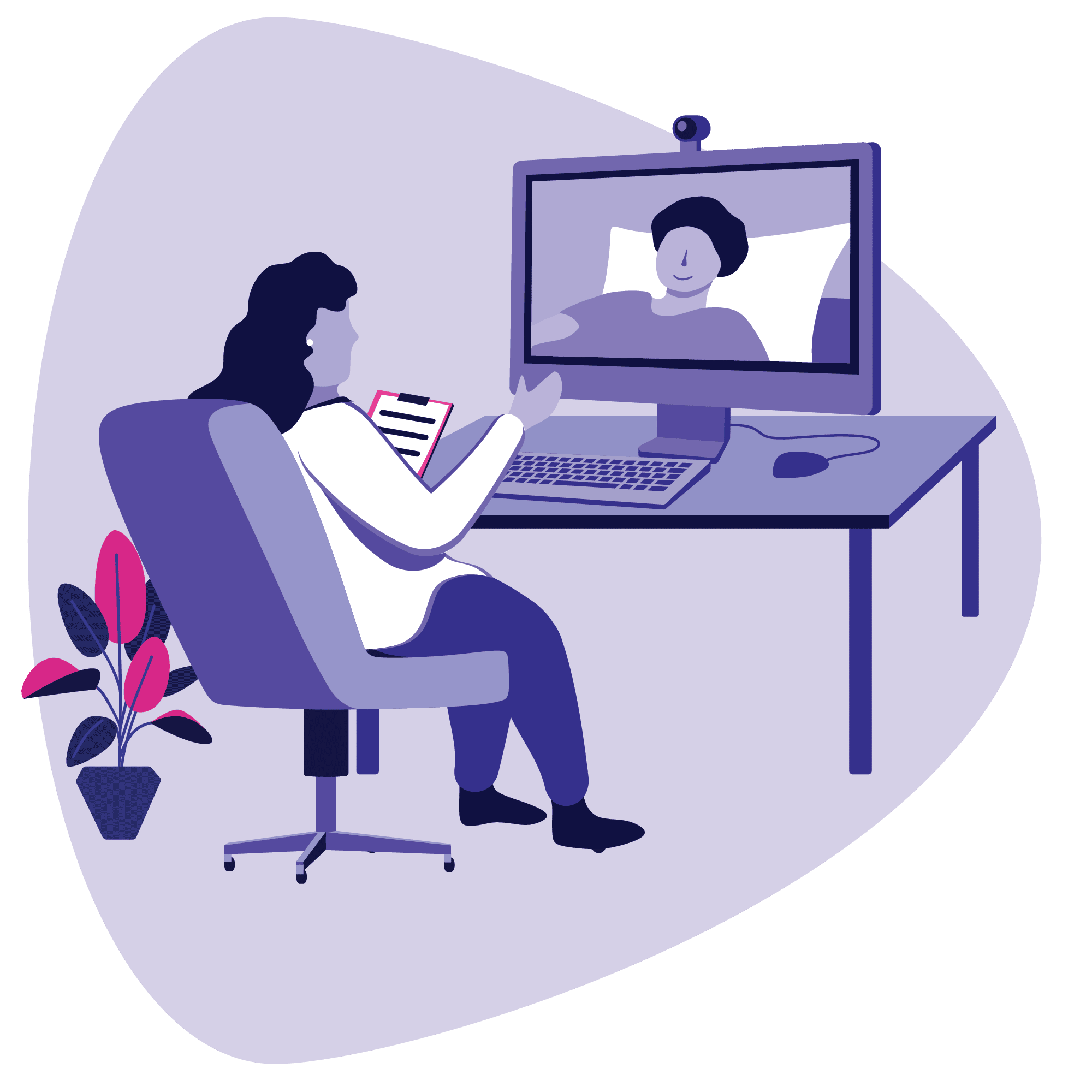Iris clinicians are at the heart of what makes our organization such a special place to work. That’s why we’re turning the spotlight on the amazing work they’re doing every day. This month, we’re sitting down to talk with Serena Loh, PMHNP.
Q. How did you find Iris and decide you wanted to be an Iris provider?
A: I found out about Iris through Indeed, where I was looking for telepsychiatry jobs. There was a job posting for a Mandarin-speaking Psychiatric Nurse Practitioner (PMHNP). I signed up for that, and I got connected to Erin Schepmann.
Q. What does a typical day as an Iris Telehealth provider look like for you?
A: I work remotely from my home in Indiana and see patients at the Herald Christian Health Center in California. There’s a time difference of three hours, and I start my day at 11:30 a.m. and work until 8:30 p.m. on Thursdays and Fridays. The day involves seeing patients for initial evaluations, which are one hour, and then follow-up sessions are 20-30 minutes. I do the scheduling myself because it’s the easiest when I can book the next appointment with the patient right there with me. It can be hard for the scheduler to get a hold of the patients after their appointment.
It’s very flexible for the amount of time I can see the patients. I work eight hours a day and will have some admin time and a little lunch break. I work very closely with my case manager assistant, Nicole Song. If I have any issues during the day, I’ll send her text messages, and she’ll help me coordinate, which is very helpful. I don’t feel like I’m working alone.
Q. How do you foster connection with patients virtually?
A: For a virtual session, I will explain what the session entails and let them know roughly how much time it takes. On the initial evaluation, I’ll set expectations for no-shows and let them know if there are any questions I ask them that are too personal or too sensitive to be talked about at the first session, they can tell me to skip it, and it’s totally fine. I also let them know if they’re thirsty, they’re welcome to drink water. That can put them at ease. Virtually, most patients will be sitting still, but some patients do different things during the session, which sometimes happens due to their situation. If they’re driving, I’ll ask them if they’ll be able to park soon, let them know we can hold on, or re-schedule if they need.
However, because I work with the low-income bracket in California, some patients don’t always have access to video calls on their phone or wifi capabilities, so sometimes I talk to them over the phone with the company’s app for calling. There is also a clinic within the site where they can go for video calls with me if they can get there.
Q. As a healthcare professional, how do you manage work-life balance?
A: Work-life balance is very important. For me, I try to do something I enjoy every day. Such as reading, exercising, or spending time with my loved ones. I think it’s important to have that self-care time and to set boundaries with checking emails and checking work stuff. On off days, I have to really set a physical, emotional, and mental limit on those.
Q. What are your biggest learnings from your time at Iris?
A: I’ve been learning a lot from my two medical collaborators Dr. Margery Johnson and Dr. Regina Bahten. They’re both very instrumental to my clinical skills and growth as they supervise my work. I learn a lot from them, especially for complex cases. I learn about different ways of treatment and different approaches for conditions such as ADHD.
Q. What is the most rewarding part of your job?
A: I think the most rewarding part of my job is having a good relationship with my clinical colleagues at Herald Christian Health Center. I’m very thankful that the health center is a perfect fit for me. And I enjoy working with them a lot because we know there’s a limit to how much we can help patients sometimes. Our role is to be a support and to help them as much as we can with treatment. However, at the end of the day, I feel like I’m part of a team working together for the patient, there’s a great sense of satisfaction – knowing that we all have the same goals, vision, and values.
Q. What do you love about working with Iris?
A: Iris is a very nice company to work for. I remember before I even joined Iris, they sent me a Christmas package, and I was so surprised. And then they sent me a birthday cake and a Christmas present last year. During my first month at Iris, my manager Melissa Kennedy sent me a gift basket of goodies – that’s a lot of goodies from Iris!
Iris is also very responsive to our needs and helps with any issues.
Q. Why do you think telepsychiatry is important to the future of mental healthcare?
A: During the COVID-19 pandemic, facilities shut down, and people didn’t like to travel for fear of catching the virus. Telepsychiatry opens up many options for people who are home-bound, do not have a vehicle, or have difficulty getting transportation to a facility. It opens up access to providers because some places have a shortage of providers, and the wait time is very long, like three to four months. But if you have telepsychiatry, the pool is widened to all over the U.S., as long as the provider is licensed in that state.
Telepsychiatry also gives the patient a shorter waiting time. And, evidence has shown that telepsychiatry is just as effective as in-person psychiatry.
At Iris, we believe our providers should be respected, valued, and applauded for the work they do, and we couldn’t be more proud to say, “thank you” to our very own Serena Loh. If you’d like to learn more about working for Iris Telehealth, contact us today.



